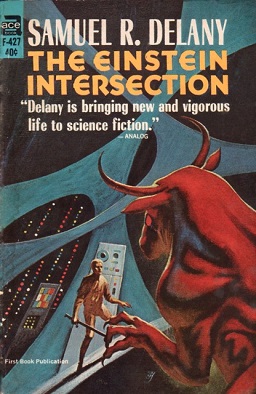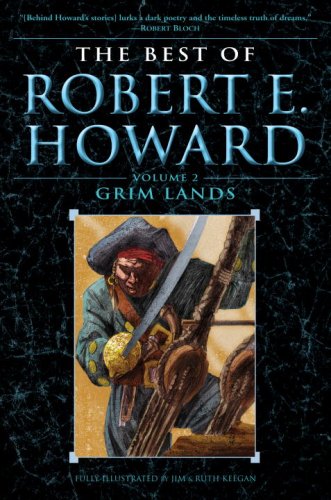 50 Short Science Fiction Tales
50 Short Science Fiction Tales
Edited by Isaac Asimov and Groff Conklin
3 out of 5 stars
Read in October 2008
The Fun They Had by Isaac Asimov — three stars (***) — stories featuring PoV from children rarely appeal to me so this was a cute story more than a good one.
Men Are Different by Alan Bloch — four stars (****) — Amazing for such a short (1-2 pages) story
The Ambassadors by Anthony Coucher — three stars (***) — Ironic paranormal plot
The Weapon by Fredric Brown — two stars (**)
Random Sample by T.P. Caravan — three stars (***) — PoV from a spoiled child who definitely needed a lot of discipline
Oscar by Cleve Cartmill — two stars (**)
The Mist by Peter Cartur — three stars (***)
Teething Ring by James Causey – four stars (****) — ; desperate house wife/traveling salesman but not your normal results
The Haunted Space Suit by Arthur C. Clarke — four stars (****) — this story will bring a smile to your face with the last sentence.
Stair Trick by Mildred Clingerman — two stars (**) — I may have to read this one again as it was a bit odd
Unwelcome Tenant by Roger Dee — three stars (***) — Interesting premises regarding human intelligence/progress or lack there of, but the ending was predictable.
The Mathematicians by Arthur Feldman — four stars (****) — sort of an alternate history told from the point of view of those who usually write history and as a father telling a bedtime story to his daughter.
The Third Level by Jack Finney — three stars (***) — somewhat ironic and humorous ending
Beautiful, Beautiful, Beautiful by Stuart Friedman — two stars (**) — utopia rejected and de-evolved
The Figure by Edward Gendon — three stars (***) — a time machine tale with a twist and a poke of human arrogance
The Rag Thing by David Grinnel — three stars (***) — sci-fi horror in a boarding house
The Good Provider by Marion Gross — three stars (***) — time travel expediency
Columbus Was a Dope by Robert A. Heinlein — four stars (****) — bar tending and philosophy but not in your normal tavern
Texas Week by Albert Hernhuter — four stars (****) — what is real? The backyard you see or envision?
Hilda by H.B. Hickey — four stars (****) — observation does not always reveal the whole experience
The Choice by W. Hilton-Young — two stars (**) — A very short time travel yarn that tries to be more expansive than it is
Not with a Bang by Damon Knight — four stars (****) — the last man on Earth finds the last woman and gets his just desserts
The Altar at Midnight by C.M. Kornbluth — four stars (****) — consequences of space travel and the penances of the inventor
A Bad Day for Sales by Fritz Leiber — three stars (***) — first mobile sales robot not programmed to deal with an apocalypse
Who’s Cribbing? by Jack Lewis — three stars (***) — frustrated author rejected for plagiarism repeatedly for his original works of scifi
Spectator Sport by John D. MacDonald — three stars (***) — a creepy time travel tale
The Cricket Ball by Avro Manhattan — four stars (****) — a delightful story of a professor/scientist’s experiment gone haywire with some British humor thrown in.
Double-Take by Winston K. Marks — two stars (**) — a technology tale about a new way to film and view movies
Prolog by John P. McKnight — one star (*) — Neanderthal man learning to speak
The Available Data on the Worp Reaction by Lion Miller — two stars (**) — Could be an early autism-like story, about a boy who creates a wondrous contraption out of junk but no one can communicate with him
Narapoia by Alan Nelson — two stars (**) — The science is that of psychology, with a twist, so not you’re typical tech heavy tale.
Tiger by the Tail by Alan E. Nourse — four stars (****) — Curiosity caught the quantum physicists, after the hypnotized housewife though.
Counter Charm by Peter Phillips — two stars (**) — Perhaps I’m just dense, but I don’t get this very short story. Perhaps I needed to live in the atomic crazed fifties to understand.
The Fly by Arthur Porges — four stars (****) — Riveting recall of a minature visitor in disguise
The Business, As Usual by Mack Reynolds — four stars (****) — Time traveller swindled by jaded gregarious future con man
Two Weeks in August by Frank M. Robinson — four stars (****) — Imaginary off-world vacations, or not? Cute story that will brighten your day.
See? by Edward G. Robles, Jr. — four stars (****) — Very imaginative alien invasion idea thwarted by the homeless.
Appointment at Noon by Eric Frank Russell — three stars (***) — Not sure this actually qualifies as a science fiction tale, but it definitely had punch.
We Don’t Want Any Trouble by James H. Schmitz — four stars (****) — This is the second short story I’ve read by Schmitz recently and he’s definitely a great writer. This short story is similar to the Thing but even more insidious.
Built Down Logicially by Howard Schoenfeld — four stars (****) — Very short, cute and crisp.
An Egg a Month from All Over by Idres Seabright — three stars (***) — Sort of creepy
The Perfect Woman by Robert Sheckley — three stars (***) — Future domestic bliss tarnished
The Hunters by Walt Sheldon — three stars (***) — People hunted to extinction with a twist
The Martian and the Magician by Evelyn E. Smith — four stars (****) — Son doesn’t want to inherit father’s magic shop and ends up inheriting much more
Barney by Will Stanton — two stars (**) — Scientist’s diary tracking his experiments successes and failures
Talent by Theodore Sturgeon — four stars (****) — Absolute power corrupts absolutely, unless it’s absolutely arrogant to the point of stupidity.
Project Hush by William Tenn — four stars (****) — Secret space race to the moon
The Great Judge by A.E. Van Vogt — three stars (***) — Definitely a warning to all scientists to take an ethics class
Emergency Landing by Ralph Wililams — three stars (***) — The night shift is either very dull or very weird.
Obviously Suicide by S. Fowler Wright — three stars (***) — And ending the anthology on a pratical note, leave it to the women to do the right thing and make the big decisions.
Cumlative rating averaged for all stories : 3.16
 by Terry Pratchett
by Terry Pratchett








 The Best of
The Best of